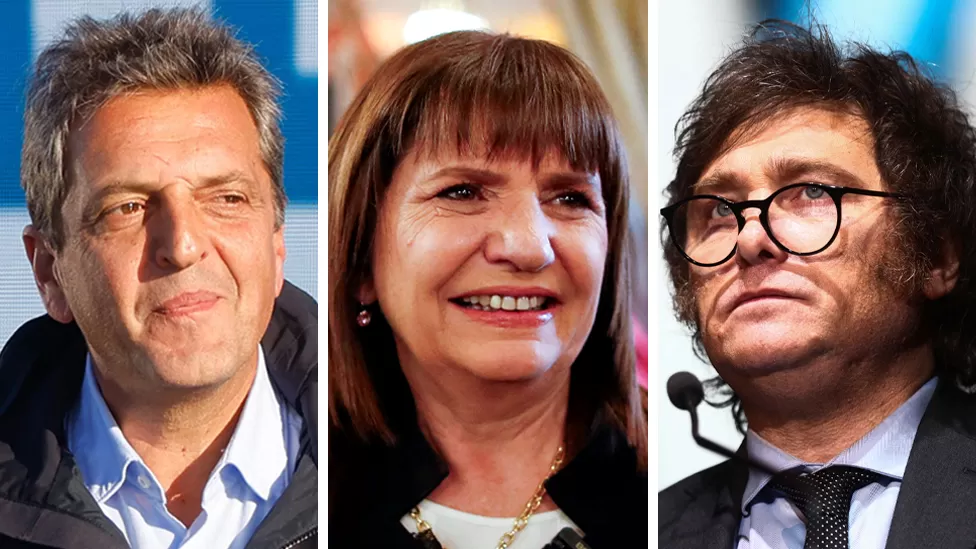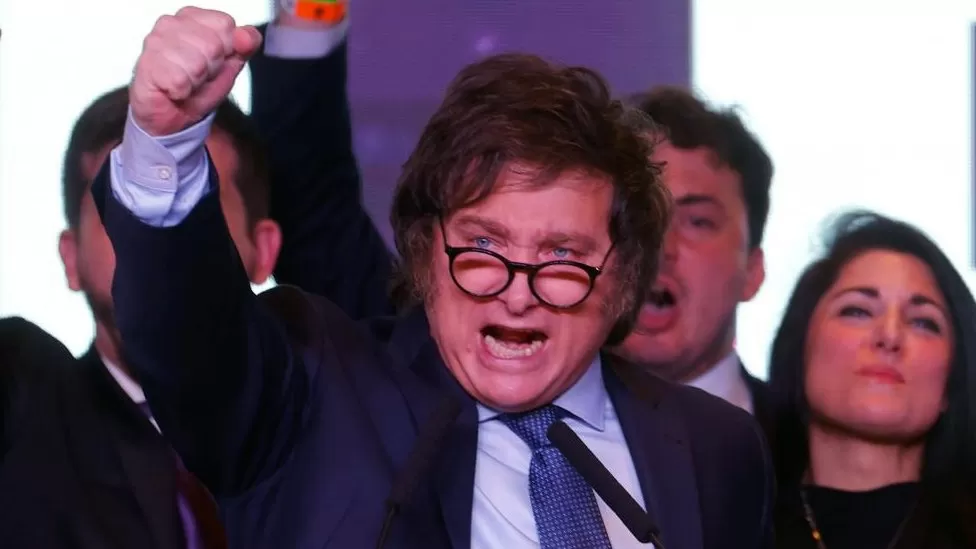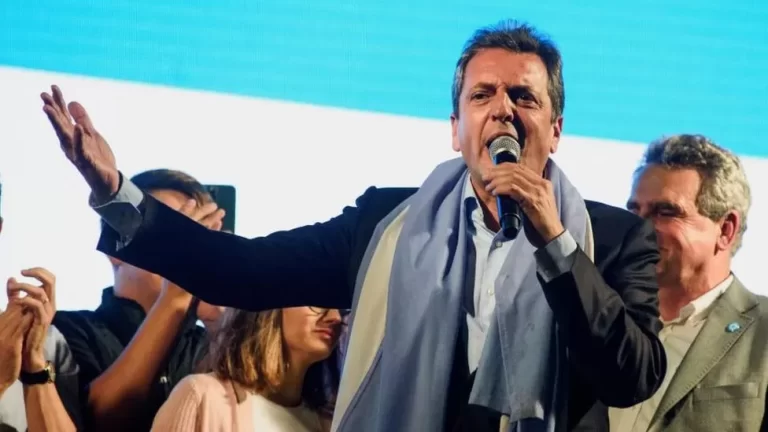Argentina's economy minister Sergio Massa has defied expectations by winning more than 36% of the vote in Sunday's presidential election, putting him on course for a run-off contest with far-right candidate Javier Milei.
With most ballots now counted, no candidate has received more than 45% of votes – the threshold to be elected. Many pollsters believed voters would punish Mr Massa for presiding over a financial crisis.
Inflation in Argentina is nearing 140%.
Front-runner Mr Milei was leading in the polls prior to the vote. He received 30% of votes, which was surpassed by the tally of his left-wing rival. Argentines will have to choose between the two in a follow-up vote scheduled for 19 November.
Sunday's election saw a voter turnout of 74%, according to local media. Argentina's pre-election polls are notoriously inaccurate, and failed to predict Mr Milei's rise in August's primaries. Argentina has witnessed a rise in support towards the far-right politician, who has vowed to scrap the central bank and replace the Argentine peso with the US dollar.
As well as pledging a shift in economic policies, Mr Milei has campaigned to reduce government offices in what he says would reduce bureaucracy in government.
Current economy minister Mr Massa and former security minister Patricia Bullrich were Mr Milei's main opponents ahead of Sunday's vote. The pair are two big hitters from Argentina's traditional coalition. Mr Massa focused much of his campaign in defending the Peronist movement's social and labour credentials.

The 51-year-old insisted that austerity measures passed by his government were the result of the IMF debt run up by the previous centre-right administration.
The partial count suggested that 23.8% of votes had gone to right-wing Ms Bullrich, who had pledged to restore “order” to the country. She was security minister between 2015 and 2019 during Buenos Aires's centre-right leadership.
Addressing supporters after her defeat, Ms Bullrich said “populism has impoverished the country”. In reference to Mr Massa's performance, she said: “I will not congratulate who comes back to power, who has been part of the worst government in Argentina's history.”
Trailing behind all three candidates were politicians Juan Schiaretti and Myriam Bregman. This surprise twist puts Mr Massa in first place, despite assumptions from many people that Mr Milei would be the star of the show.
The unpredictable results now mean uncertainty for another four weeks until the run-off on 19 November – at a difficult time for the economy.
What appears certain, though, is that whoever wins the presidential election will have a huge job on their hands: to win over a country fed up with politics, which is filled with people desperate for their lives to improve.
Mr Milei told his supporters that they had witnessed “the most important election in the last 100 years,” adding that Sunday's vote was “historic” because “Argentines voted for a change”.
“The status quo is catastrophic, but for many Argentines, the price to pay for economic reform is clearly too high,” said Benjamin Gedan from the Wilson Center, a Washington DC think tank. Reacting to the election results, Mr Gedan told the BBC Argentines “have suffered a lot in recent years”.
The head of the Wilson Center's Argentina project added that the cost of changes to key infrastructure, such as buses and natural gas, was not appealing to many voters. Polls before Sunday's vote had suggested the presidential race could indeed to go to a run-off.
For a candidate to win outright in the first round they would have needed to secure more than 45% of votes – or 40% plus a margin of 10 percentage points over the closest rival.

As well as choosing its new president and vice-president, Argentinians also voted for 130 new representatives for the lower house of Congress, which has 257 members, and 24 new senators for the 72-member upper house.
— CutC by bbc.com


